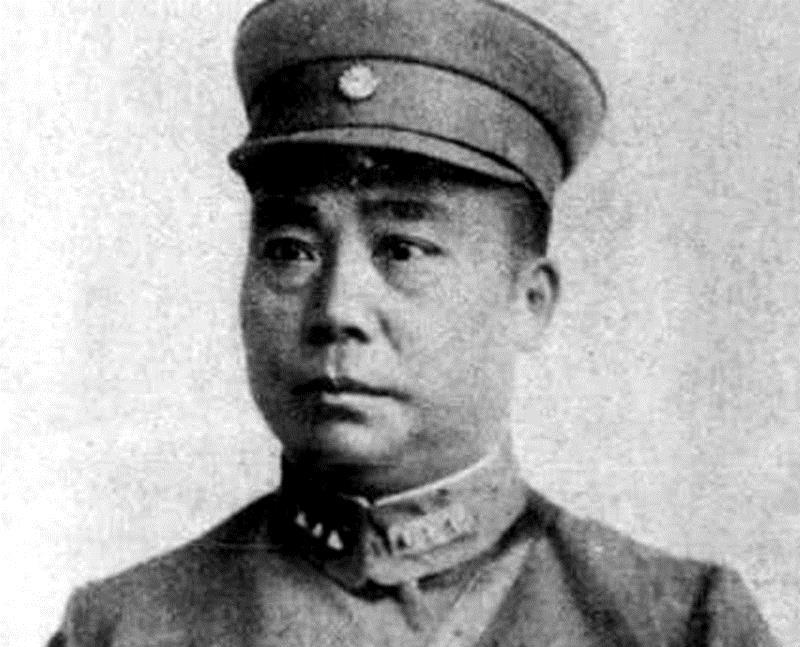During the Republic of China period, the Warlords of Sichuan fought for many years, and eventually Liu Xiang successfully unified the whole territory of Sichuan, and thus became the "King of Sichuan". Objectively speaking, although Liu Xiang unified Sichuan, his strength was not much ahead of other Sichuan warlords, and there were several warlords in Sichuan who were equal in strength to Liu Xiang, such as Deng Xihou.

Deng Xihou and Liu Xiang, the "King of Sichuan", were people of the same era. After the outbreak of the War of Resistance Against Japan, Liu Xiang vowed to drive the Japanese out of China, but unfortunately he died before he could get out of the army. After this, Deng Xihou became the leader of the Sichuan Army during the War of Resistance Against Japan, and under the command of Deng Xihou, more than 3 million people were recruited in Sichuan during the entire War of Resistance Against Japan; the victory of the War of Resistance Against Japan was inseparable from the contribution of sichuan people. So, as the leader of the Sichuan Army, what was the subsequent outcome of Deng Xihou?
Deng Xihou was born in 1889, a native of Yingshan, Sichuan, born into a poor family, whose parents died at an early age and was raised by his aunt. It is in response to the saying that "the heavens will descend upon the people of Sri Lanka with great responsibility, and they will first suffer their hearts." Although Deng Xihou grew up in such a family when he was a child, he was clever, diligent and studious, and took the rise and fall of the world as his own responsibility, and was a young man with lofty aspirations.
In 1906, the 17-year-old Deng Xihou was admitted to the Chengdu Army Primary School, and after three years of study, he was sent to the Baoding Army Officer School. After the Xinhai Revolution, Deng Xihou returned to Sichuan from the Baoding Army Officer School and joined the Sichuan New Army, officially starting his military career.
When Deng Xihou joined the army, it was in the era of China's changing situation, and after he entered the army, he successively participated in a series of wars such as the Patriotic War and the Protector of France War, growing from an ordinary aide-de-camp to a regimental commander, and gradually gaining a firm foothold in the Sichuan Army. In the following years, Deng Xihou fought with Liu Xiang, Liu Wenhui, Yang Sen and others in Sichuan, and eventually Liu Xiang became the "King of Sichuan". However, Deng Xihou was not far behind, and he became the "Four Giants of the Sichuan Army" with the same name as Liu Xiang, Liu Wenhui and others.
After the outbreak of the War of Resistance Against Japan, the Sichuan army went out of Sichuan to resist the Japanese invaders, and Liu Xiang, the "King of Sichuan", died of illness shortly after leaving Sichuan. In terms of seniority, Deng Xihou at that time was the highest in the Sichuan Army, so during the entire War of Resistance Against Japan, Deng Xihou became the leader of the Sichuan Army, and under his command, the Sichuan Army traversed most of China and made outstanding contributions to the victory of the War of Resistance Against Japan.
After the end of the War of Resistance Against Japanese Aggression, Deng Xihou was also promoted to chairman of Sichuan Province because of his outstanding military achievements, and later appointed as the director of the "Appeasement" Office of Chuankang, and the highest military commander of Sichuan and Xikang provinces. At the end of the War of Liberation, with the defeat and retreat of the Kuomintang, Deng Xihou also fell into hesitation, and there were two paths ahead of him: the first was to follow Chiang Kai-shek and flee to Taiwan; the second was to adapt to the situation and peacefully revolt.
At that time, Chiang Kai-shek still fantasized about using the southwest as the base of the civil war, so after October 1, 1949, Chiang Kai-shek personally came to the southwest and sat in Chongqing to command, and at this time, Sichuan's geographical location was particularly important. In order to appease Deng Xihou, Chiang Kai-shek also appointed Deng Xihou as deputy chief of the Southwest Military and Political Governor's Office and director of the "Appeasement" of Sichuan and Shaanxi.
However, Chiang Kai-shek did not trust Deng Xihou, and soon after, he handed over the military and political power in Sichuan to Hu Zongnan, emptying Deng Xihou, causing the contradiction between Deng Xihou and Chiang Kai-shek to deepen. In the end, Deng Xihou chose to electrify the uprising on December 9, 1949, and officially defected to the People's Liberation Army.
After the peaceful uprising, Deng Xihou was successively appointed as a member of the Southwest Military and Political Committee and vice chairman of the Southwest Military and Political Committee. Because Deng Xihou was a native of Sichuan and was familiar with the customs and customs of Sichuan, he was soon appointed vice governor of Sichuan Province and a member of the National Defense Commission.
In his later years, Deng Xihou also served as a member of the Central Committee of the Revolutionary Committee of the Kuomintang and a deputy to the National People's Congress, and he also used his status as a member of the Central Committee of the Kuomintang Revolutionary Committee to appeal to his former colleagues and classmates to jointly promote cross-strait peace. For his outstanding contribution to peace, in 1955, Deng Xihou was awarded the Liberation Medal of the First Class.
In his later years, Deng Xihou had been living in Chengdu, Sichuan, where he lived a quiet life, and died of illness in 1964 at the age of 75.
Resources:
"Records of the Warlords of Sichuan in the Republic of China" and "Biography of Senior Generals of the Republic of China" Fang Hao and Hu Bilin